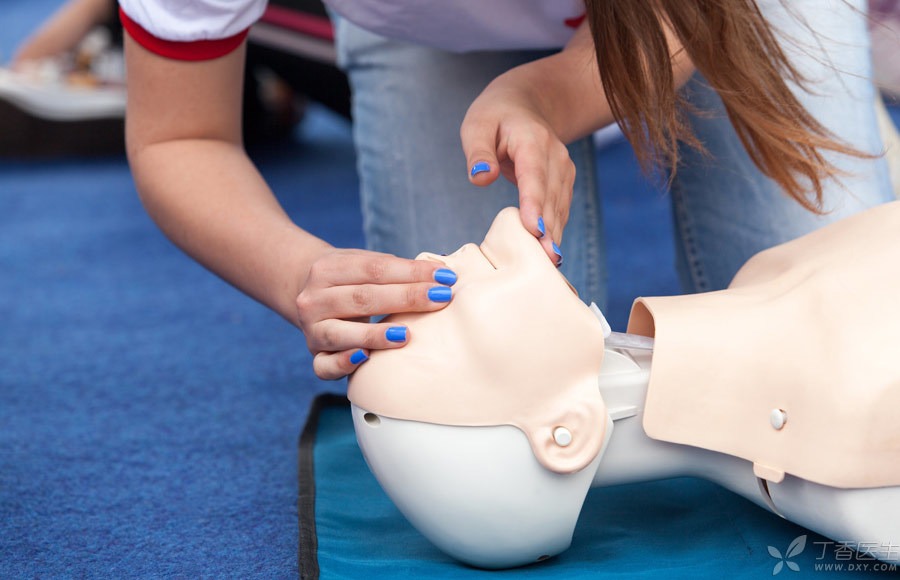
To people who faint [pinch people], to people who get stuck in fish bones drink vinegar, to people who drown [control water]…
Does this little common sense of life sound reasonable? But in fact, they are all wrong, wrong and wrong.
After all, they are all critical moments, and the wrong method is really killing me!
Don’t use movies and TV plays as learning materials any more. Today Dr. Clove will tell you how to do it.
Faint: Let’s talk about it first?
What if someone faints? Perhaps many people subconsciously [pinch people], which has always been a folk [first aid magic skill].
However, doctors will not do so, because the first aid guidelines of various countries (including China) do not include the method of “pinching people”.
In fact, [pinching people] not only cannot save people, but will hinder first aid.
- When the thumb [pinches a person], the other four fingers will naturally be placed at the chin to exert force, which will instead close the mouth of the injured person and prevent oral secretions from being discharged, causing more danger. The downward movement of the finger will also cause the injured person to bow his head, aggravate the tongue falling back and cause respiratory tract blockage.
Dr. Clove suggested:
For people who faint or fall into a coma, the correct treatment is to [lift the forehead and chin] (as shown in the figure below), let the patient lie on his back and raise his chin, and clean up foreign bodies in his nose and mouth, so as to ensure smooth breathing and avoid more risks.

Scalds: Toothpaste and lard?
A few days ago, there was news that after a classmate’s face was scalded, Shechang gave him [first aid treatment] of toothpaste and lard, and finally… his face was disfigured.
Applying toothpaste or oil itself hinders heat dissipation, and toothpaste and oil are both [foreign bodies] for human body, which can easily cause wound pollution, aggravate scar and affect wound healing.
Dr. Clove suggested:
After ordinary scalding, the first action should be [flushing], quickly flushing the scalded part with cold water, or wrapping ice cubes with towels for cold compress to reduce the temperature of the injured part, which can relieve pain and reduce further thermal damage to tissues.
This process should preferably last for 10-15 minutes until no pain is felt or the pain is significantly relieved.
Fish bones stuck in the throat: drinking vinegar and swallowing steamed bread?
Don’t say drink vinegar, even if the fish bones are directly soaked in vinegar, it will take a long time to soften.
However, such actions as swallowing steamed bread and rice may bring the fish bones deeper and deeper, puncture the esophagus or blood vessels, and pose greater risks.
Dr. Clove suggested:
If you feel that the fish bones are stuck and the fish bones are not too big, you can try to cough hard. Most of the time, those tiny fish bones will fall off with the air flow.
If you can’t cough, you can ask others to help you and see if you can use tweezers to clip it out.
If you can’t get it out, don’t force it. Go to the hospital and let a professional otolaryngologist or endoscope doctor handle it.
Nosebleeds: Raise your head back?
Raising the head will cause blood to flow back to the nasopharynx, causing aspiration, choking cough and even asphyxia, while blood flowing into the stomach may cause nausea and vomiting.
Dr. Clove suggested:
After epistaxis, one should lower one’s head slightly and lean forward, open one’s mouth to breathe, let blood flow out of one’s nostrils, hold one’s nose and oppress the bridge of one’s nose. If one cannot stop the blood, one must go to see a doctor at once.
Drowning, turning people upside down [controlling the water]?
Inverted water control not only cannot pour out the water in the lungs, but may cause reflux and aspiration of gastric contents, making the injured more dangerous.
In addition, the ineffective operation of water control delayed the opportunity of effective rescue such as chest compressions, which was really deadly.
Dr. Clove suggested:
After rescuing the drowned person ashore, he should lie flat immediately, clean up the foreign bodies in his nose and mouth, and shout and beat him. If there is no response, he should immediately carry out artificial respiration and chest compressions.
During the pressing process, some accumulated water will flow out of the drowned person’s mouth. Just tilt his head to let the water flow out, and then continue first aid.

If these problems cannot be solved by themselves, you have to turn to 120 for help.
When we cannot carry out the above treatment by ourselves, we have to call 120 for help.
However, not all the people who call 120 know how to clearly express the need for first aid. The wrong way will delay the time when the rescuers arrive at the scene, thus delaying the best treatment time.
The caller should tell the ambulance personnel the patient’s detailed condition and specific location on the phone, and be ready to meet the ambulance at any time, so as to help the ambulance personnel understand the situation as soon as possible.
